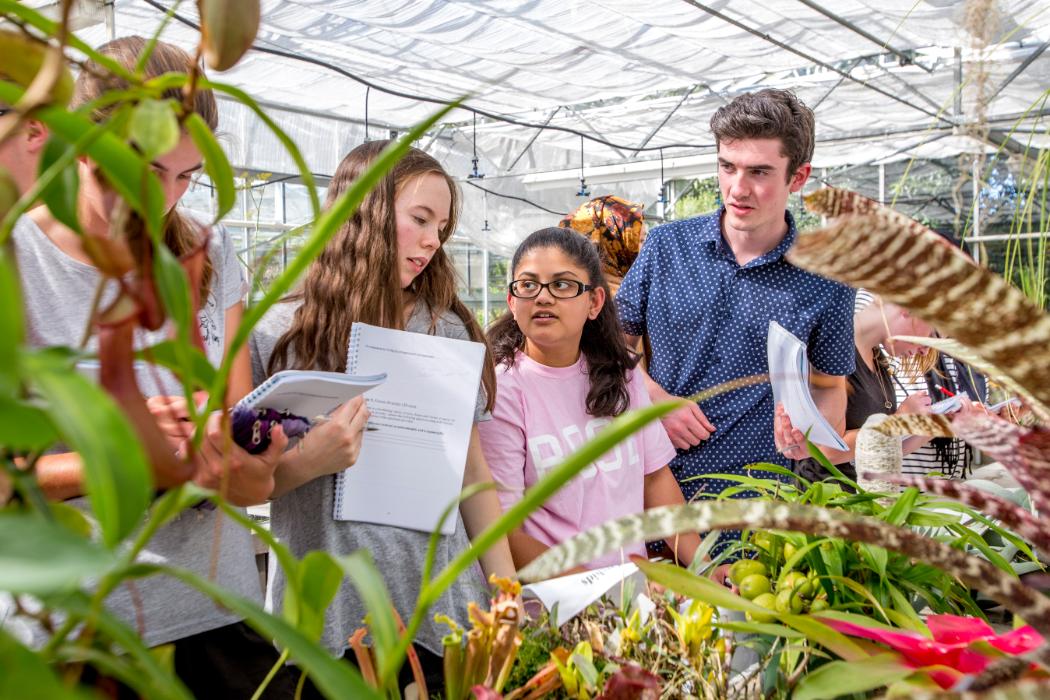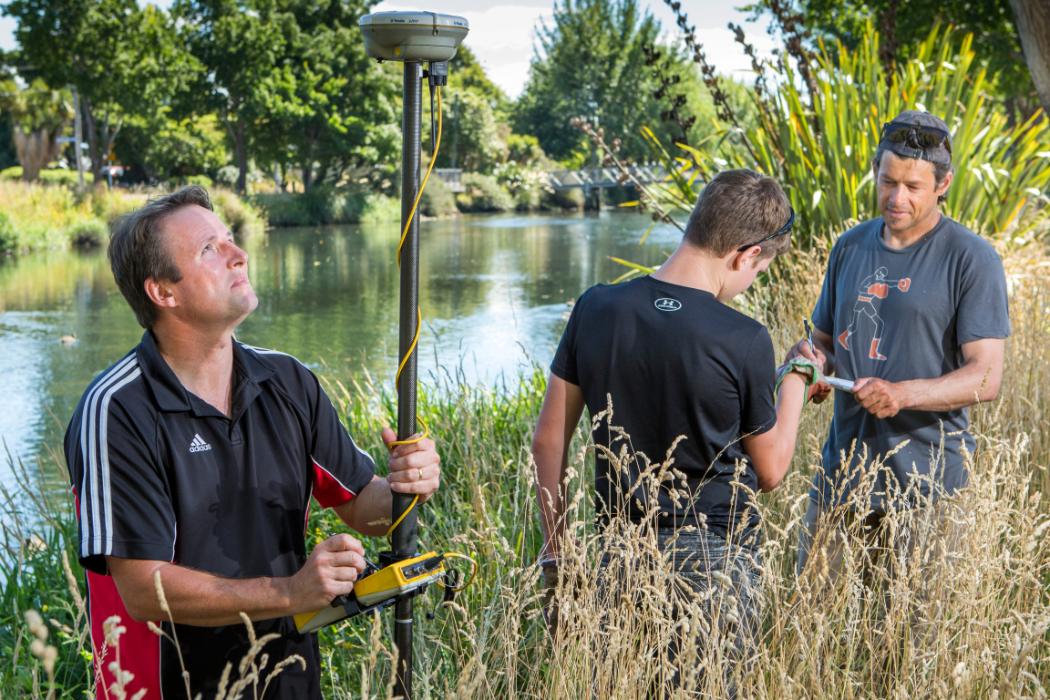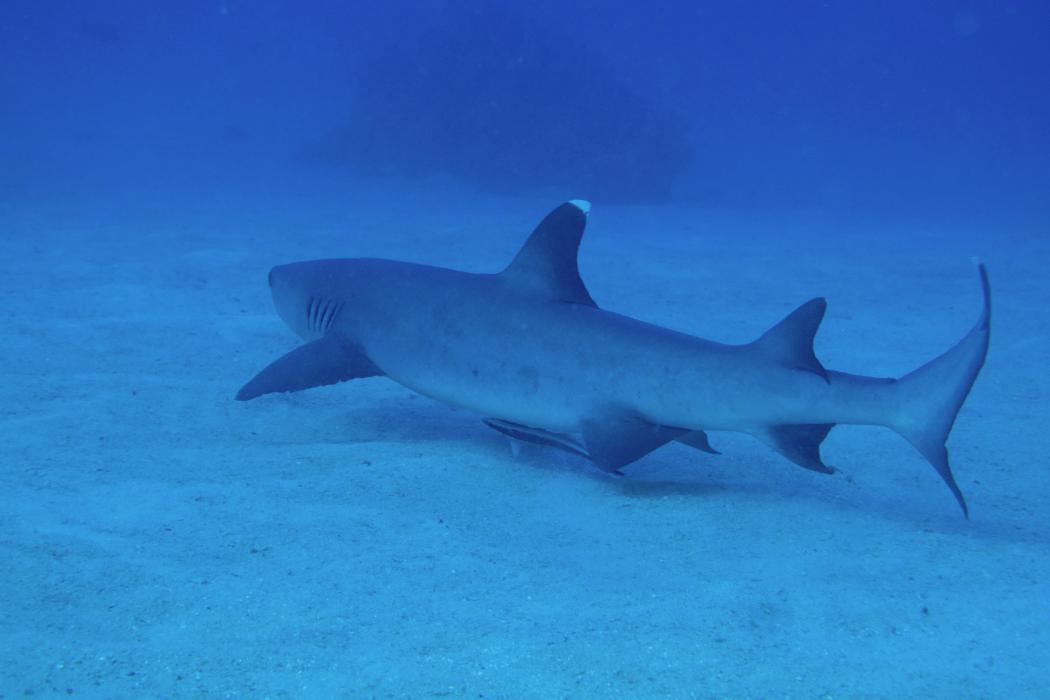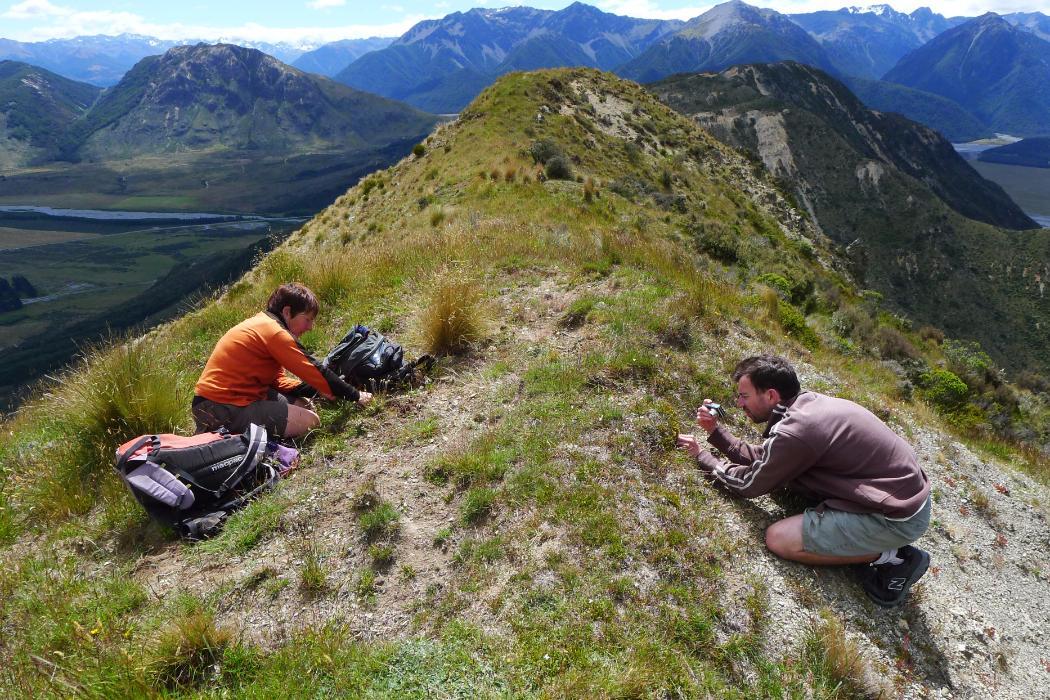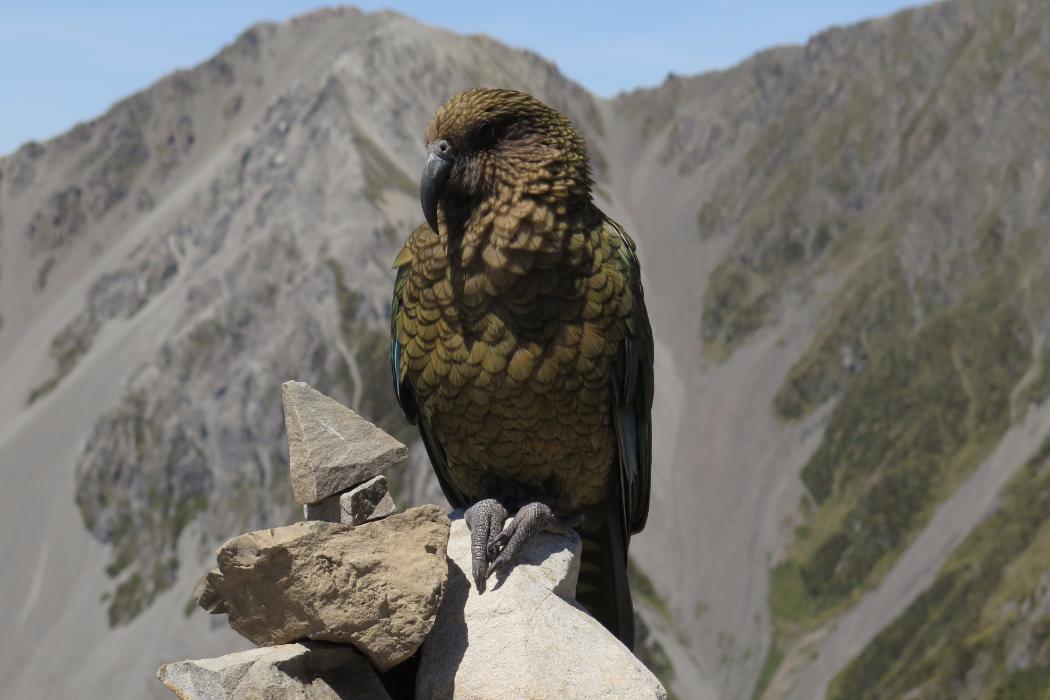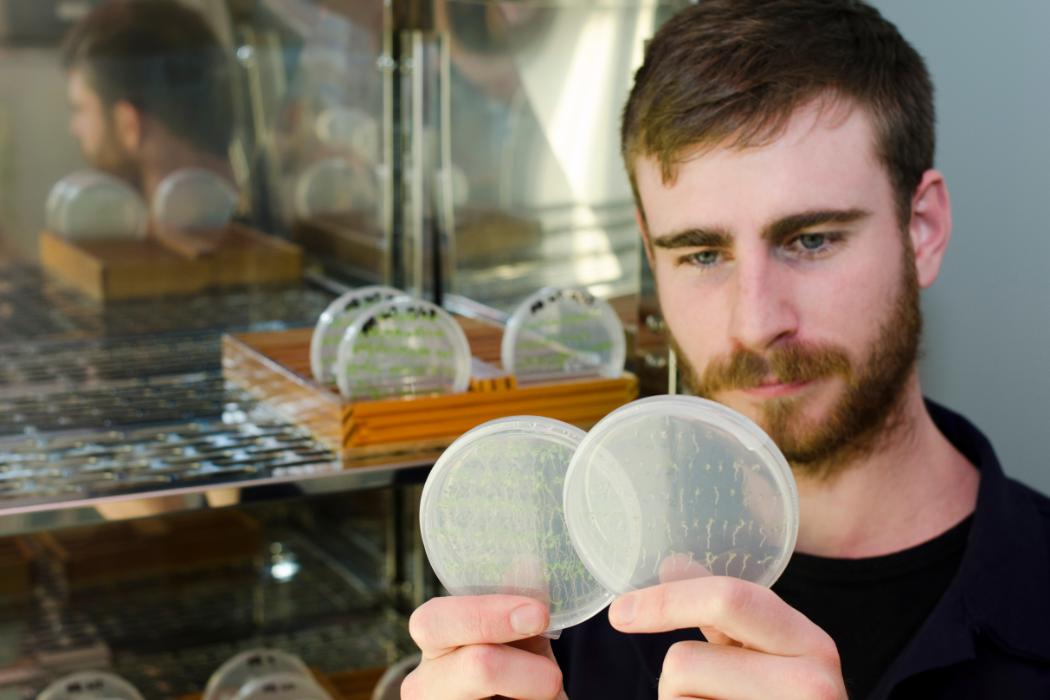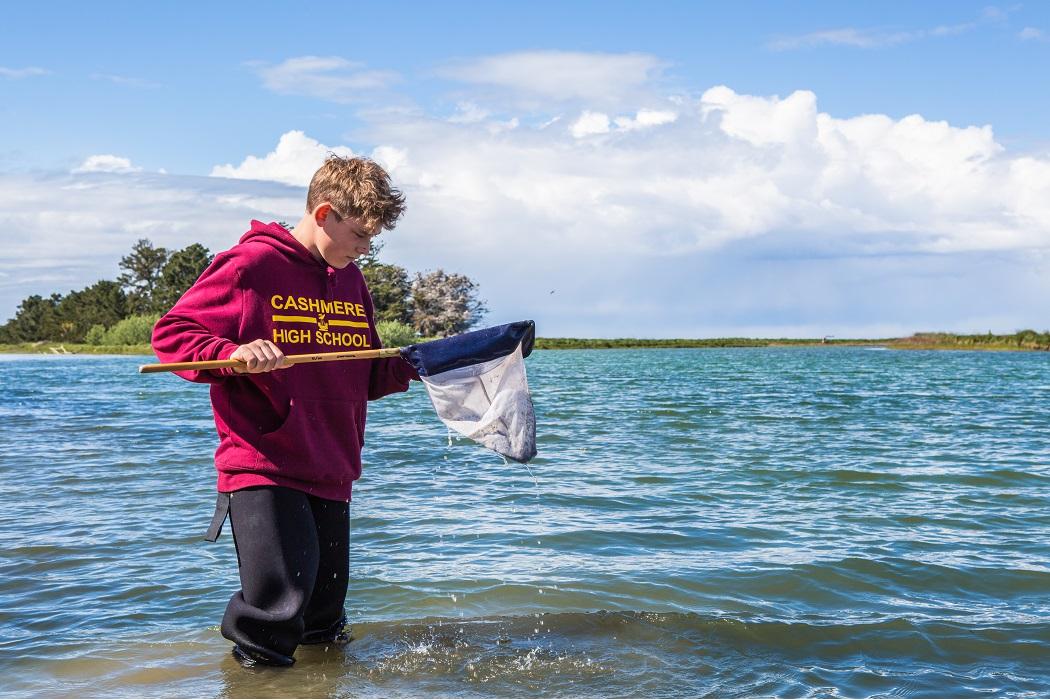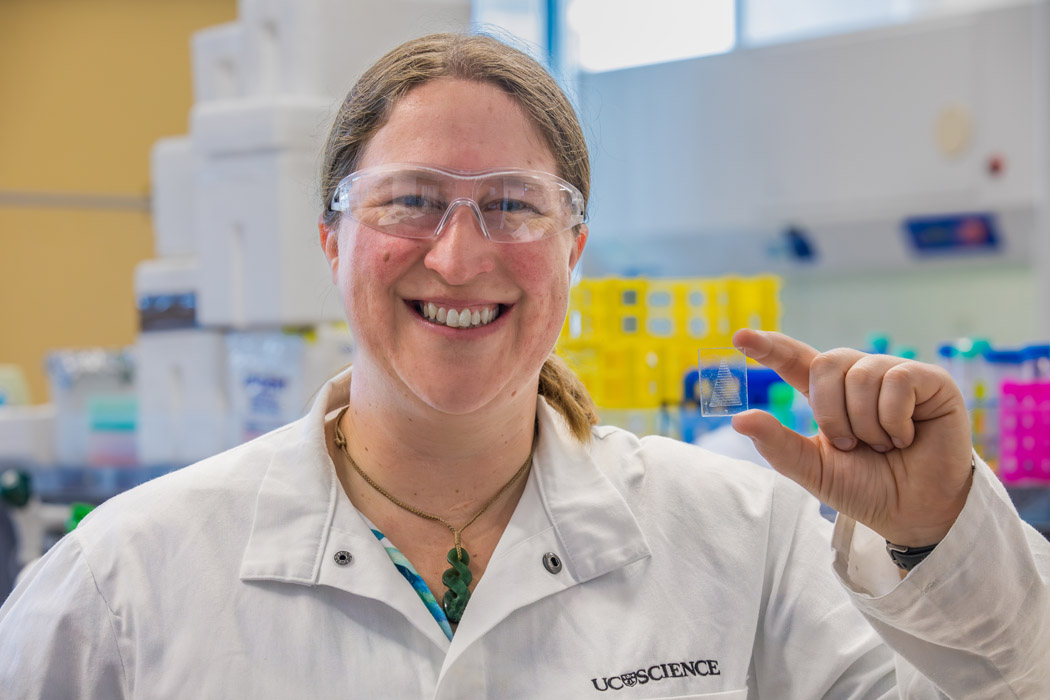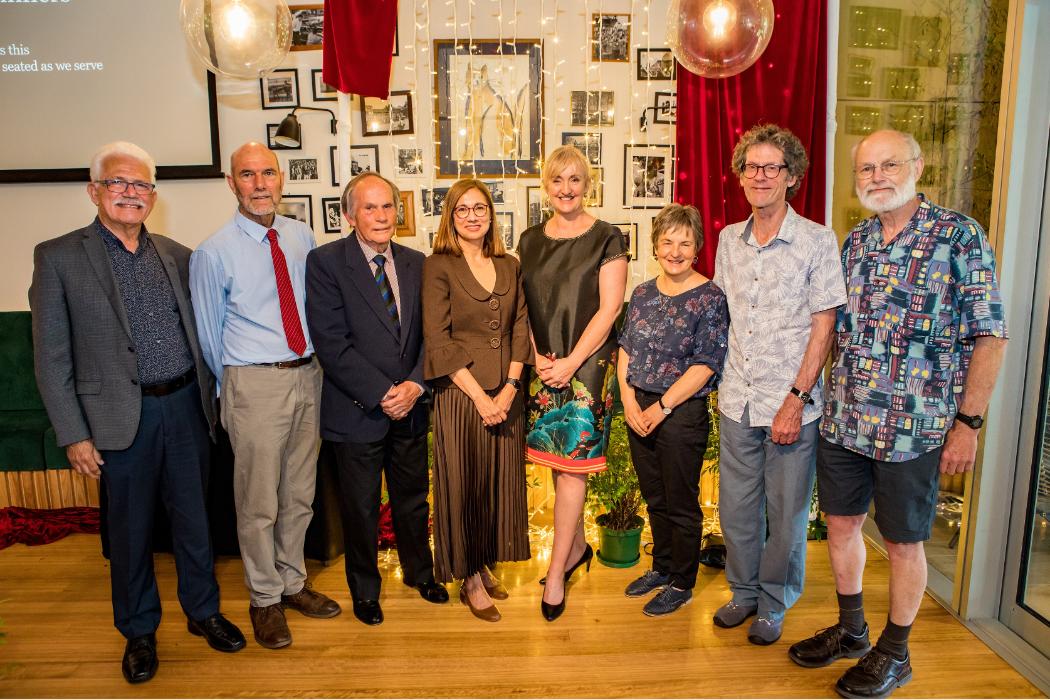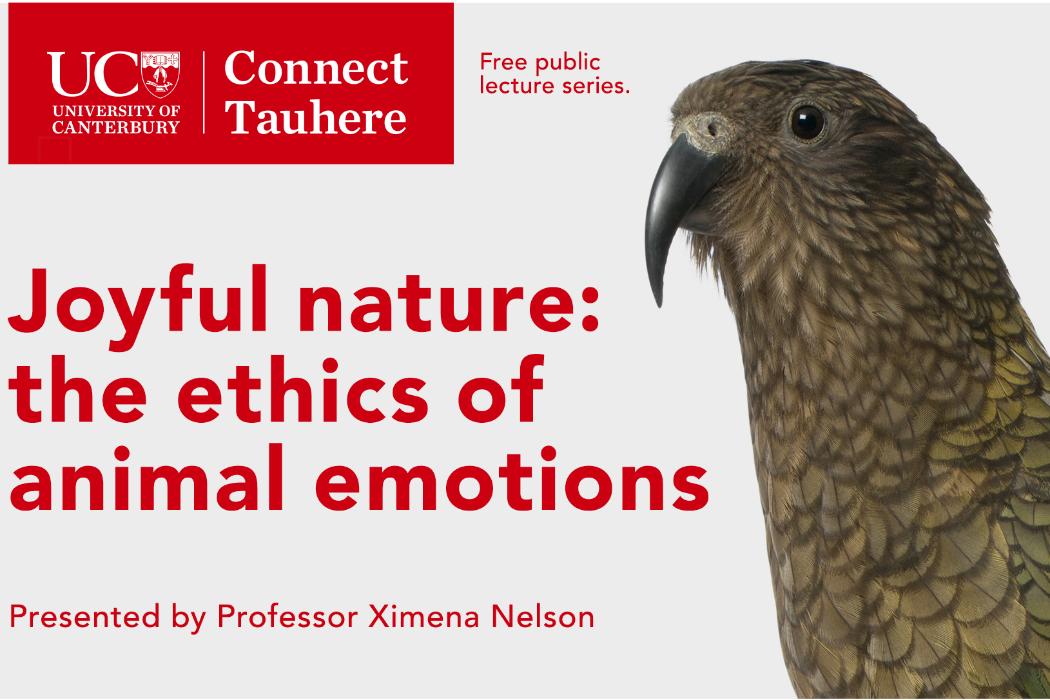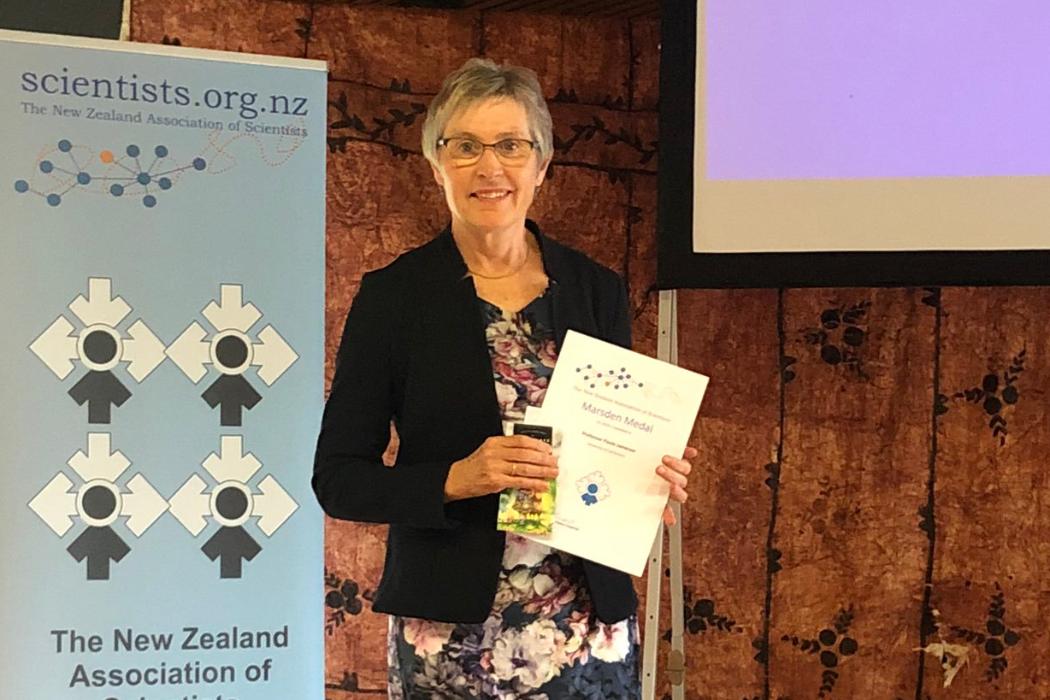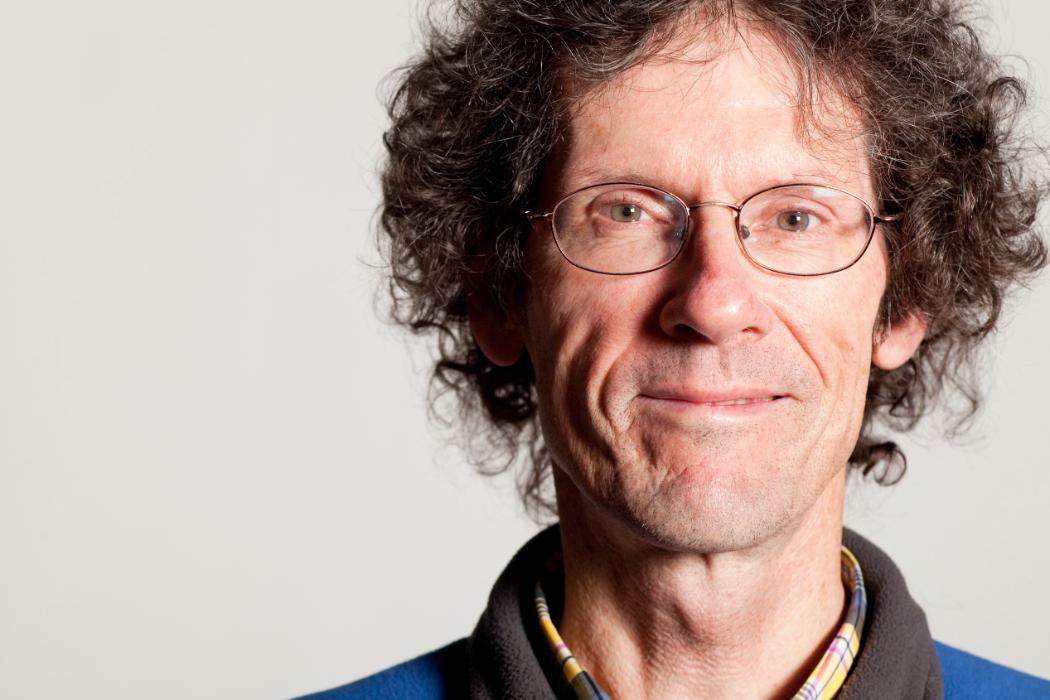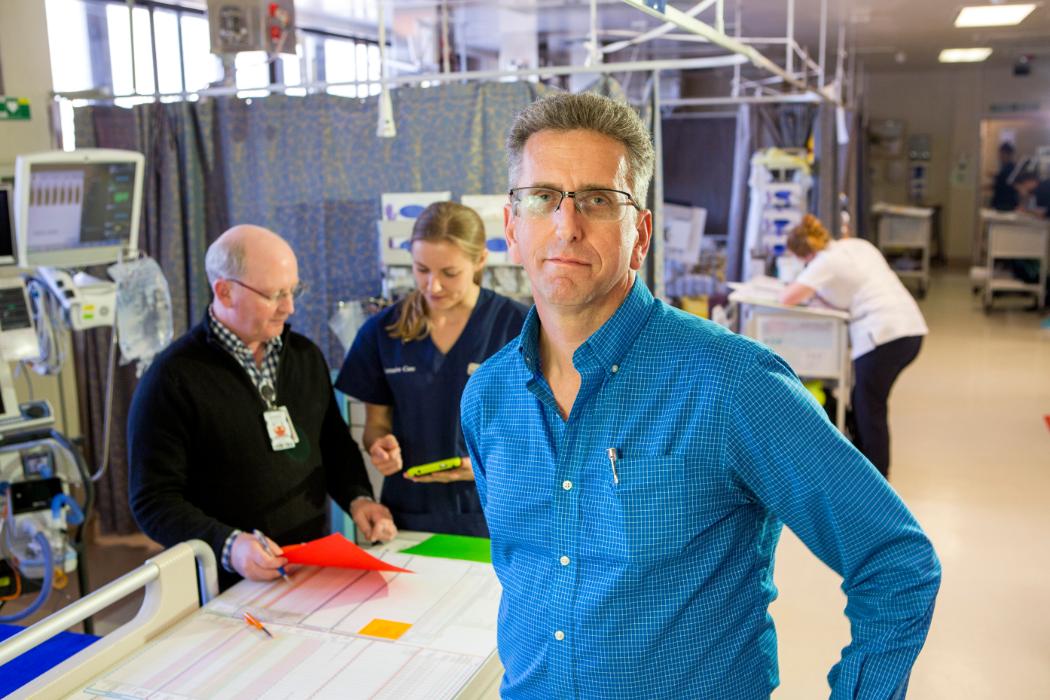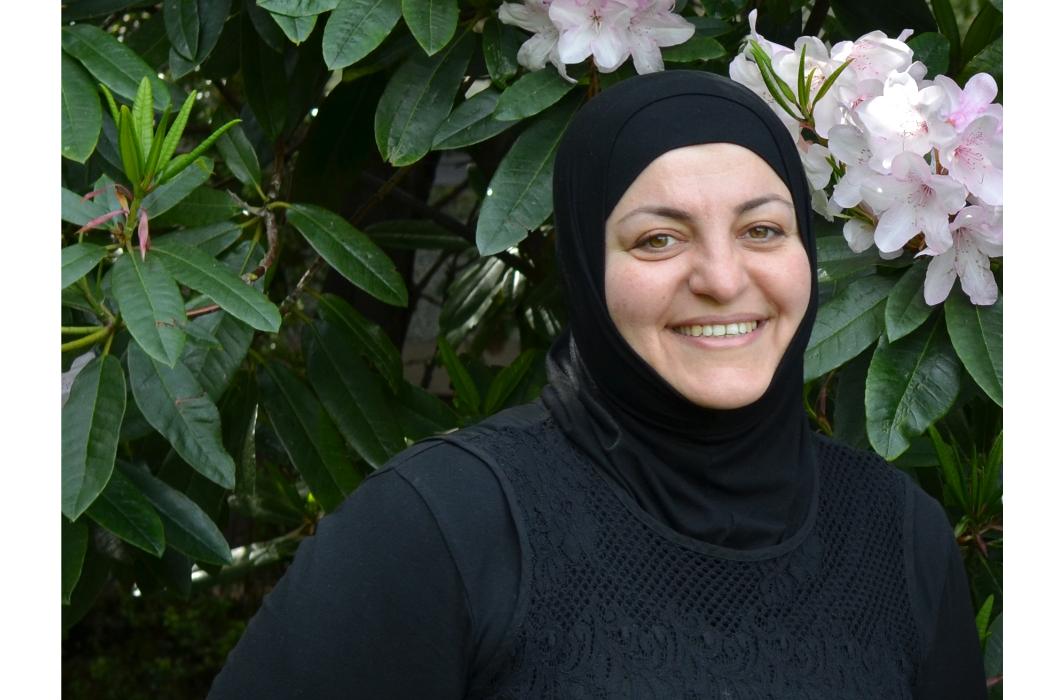Our national ranking
The Performance Based Research Fund ranks UC's School of Biological Sciences as the top biology department in New Zealand.
Our teaching staff are all active researchers and very passionate. Dynamic teams are leading research in a wide range of biology disciplines, from understanding nutrient flows and food webs across terrestrial-freshwater-marine ecosystems to investigating the amazingly good eyesight of jumping spiders.
Our state-of-the-art research building is packed full of equipment to help us measure, manipulate, visualise and quantify the living world. In one lab our analytical ultra-centrifuge allows us to study biomolecules and their interactions, with the team aiming to develop treatments for chronic inflammatory diseases such as Crohn's disease and rheumatoid arthritis.
In another lab our confocal laser scanning microscope uses fluorescent markers, bound to chemicals in live cells, to understand how cells grow and communicate.
